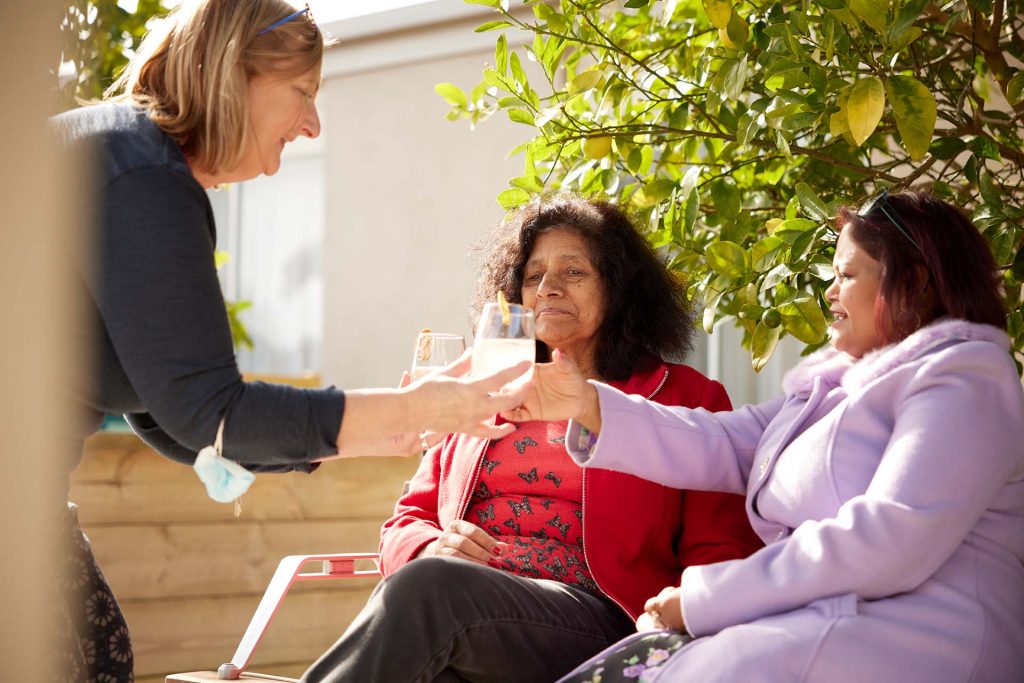

Dementia is a profound and life-altering condition that affects millions of people worldwide, and its impact extends deeply into the lives of those who care for individuals experiencing it. In Mornington, where community values strongly emphasize compassionate care and support, understanding dementia's symptoms and progression is essential for providing effective and empathetic assistance to those affected.
Dementia is not a single disease but rather a collective term used to describe various symptoms associated with cognitive decline. The most common type of dementia is Alzheimer's disease, followed by vascular dementia, Lewy body dementia, frontotemporal dementia, and others. Each type has its unique characteristics and progression patterns, yet they all share some common symptoms that evolve over time.
When caring for a loved one with dementia, deciding between in-home and facility-based care can be challenging. Each option offers unique benefits and challenges, and the choice often depends on the individual's needs and family preferences. In-home dementia care allows individuals to receive personalized support within the comfort of their own homes. This type of care emphasizes maintaining familiar surroundings, which can help reduce anxiety and confusion common among those with dementia. Families often appreciate this approach as it provides flexibility in scheduling, the ability to personalize care plans, and a sense of normalcy for their loved ones.
The major advantage of in-home care is the ability to tailor services to meet specific needs. Caregivers can assist with daily tasks such as bathing, dressing, medication management, and meal preparation while fostering independence where possible. This individualized attention often results in higher satisfaction levels for both patients and families. Additionally, home caregivers become familiar faces that provide consistent companionship—an important factor in emotional well-being for individuals experiencing cognitive decline.

In today's fast-paced world, ensuring peace of mind for our elderly loved ones is a priority that demands both attention and care.. As we age, our needs evolve, requiring thoughtful solutions that cater not just to physical well-being but also to emotional and psychological comfort.
Posted by on 2024-10-09

Navigating the complex world of aged care can feel overwhelming, especially for those who are unfamiliar with the various options and considerations involved.. However, monitoring and adjusting care plans plays a crucial role in ensuring both quality and satisfaction for elderly individuals and their families.
Posted by on 2024-10-09

The aged care systems around the world are at a critical juncture, facing mounting challenges due to aging populations, resource constraints, and evolving societal expectations.. As we look to the future, it is imperative that policy reform in this sector not only addresses current inefficiencies but also anticipates the needs of future generations.
Posted by on 2024-10-09

Dementia care has long been a pressing challenge for healthcare systems worldwide.. As populations age, the prevalence of dementia is expected to rise, necessitating innovative solutions and future directions to improve care quality and accessibility.
Posted by on 2024-10-09
Creating a safe home environment for someone with dementia requires an understanding of the unique challenges they face. Dementia can affect memory, judgment, and problem-solving skills, leading to difficulties in navigating familiar spaces. Individuals may struggle with recognizing common household items or remembering how to use them safely. Therefore, it is crucial to anticipate potential hazards by observing daily routines and identifying areas that could cause confusion or accidents.
A key aspect of ensuring safety is simplifying navigation within the home. Use clear, contrasting colors on walls and floors to help differentiate between different areas. Installing signs with words or pictures can guide individuals to important rooms like the bathroom or kitchen. Keep pathways clutter-free and ensure adequate lighting throughout the house, particularly in hallways and staircases, to reduce fall risks.

In Mornington, aged care facilities typically offer a range of dementia care services, including personalized care plans, specialized memory support units, 24/7 supervision by trained staff, therapeutic activities to stimulate cognitive function, and assistance with daily living activities.
To choose the right facility, consider factors such as the level of medical and personal care provided, staff qualifications and experience in dementia care, availability of specialized programs for cognitive stimulation, the environments safety and comfort, and reviews or recommendations from other families.
Yes, financial assistance options may include government-funded programs like Home Care Packages or Commonwealth Home Support Programme (CHSP), which can subsidize costs. Additionally, you might explore private insurance coverage or inquire about payment plans directly with the facility.
During a visit to such a facility, expect a tour of the premises including common areas and resident rooms. You will likely meet with staff members who can explain their approach to dementia care. Its also an opportunity to observe interactions between residents and caregivers and assess the overall atmosphere.
Yes, many facilities encourage family involvement through regular communication updates on your loved ones condition and progress. Some may offer family meetings or events where relatives can participate in activities with residents.